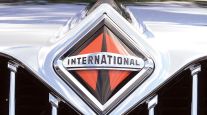Navistar Drops Its Lawsuit After CARB Signs Agreement
This story appears in the May 3 print edition of Transport Topics.
Truck maker Navistar Inc. has dropped its lawsuit in state court alleging that the California Air Resources Board planned to adopt the Environmental Protection Agency’s formal “guidance” as its policy for the use of selective catalytic reduction technology to meet federal 2010 diesel engine emissions reduction standards.
Navistar’s lawsuit, filed last year in San Francisco Superior Court, alleged that CARB, like EPA, was applying certification requirements that permitted SCR-equipped diesel-powered trucks to operate for extended periods without any of the diesel exhaust fluid needed to control nitrous oxide emissions.
Navistar, whose International trucks do not use SCR, said it withdrew the lawsuit — which closely mirrors allegations contained in a federal appeals court lawsuit against the EPA — because CARB officials signed a written agreement that “addresses the issues that prompted the court action.”
Navistar spokesman Roy Wiley said CARB formally agreed not to adopt EPA’s 2009 guidance as its policy and also pledged to hold a workshop by August on SCR technology.
Navistar’s lawsuit against EPA is set for a hearing May 10 in the U.S. Court of Appeals for the District of Columbia Circuit.
In its CARB lawsuit, Navistar had argued that EPA’s 2009 guidance “allows engines to operate for multiple and lengthy periods of time with the NOx emission control SCR systems turned off, causing uncontrolled NOx to be discharged into the air.”
Navistar said in a statement that it expects the workshop “to produce an outcome that will eliminate the opportunity for SCR-equipped trucks to operate with uncontrolled NOx emissions for multiple and lengthy periods of time.”
“The bottom line is we’re confident that CARB fully understands the issues that we have raised in our lawsuit,” Wiley said. “Since California is a leader in emissions, our message is not falling on deaf ears, and we expect that out of this workshop will come some regulations that will level the playing field.”
“We’re pleased that Navistar’s withdrawal will avoid the time and taxpayer expense of litigation,” said Karen Caesar, a CARB spokeswoman.
Caesar said CARB suggested that a workshop be held to “go over certification issues with all the engine manufacturers. [Navistar] said, ‘Yes,’ and then the lawsuit was dismissed.”
Navistar, manufacturer of International trucks, is the only manufacturer planning to use exhaust gas recirculation to meet EPA’s 2010 NOx emissions standards. All other major heavy truck manufacturers, including Volvo Trucks North America, Mack Trucks, Detroit Diesel and Cummins Inc., have adopted the SCR technology to meet 2010 standards.
“We are pleased that CARB is taking this action, and we look forward to participating in the workshop,” said Jack Allen, president of Navistar’s North American Truck Group. “We expect that our agreement with CARB will result in equal enforcement of the 2010 NOx requirements for all engine makers.”
Wiley said that CARB said last year they would follow the EPA guidance. “That’s why we filed the lawsuit,” he added.
Navistar has claimed in legal documents that the EPA guidance has the effect of being a “legislative rule,” and by not going through the rulemaking process, EPA violated the mandatory rulemaking procedures in the Clean Air Act.
In its filings, Navistar also has claimed that the SCR process has a “fatal flaw” in the control strategy for NOx reductions because it requires drivers to ensure that the DEF tank stays full. Without the DEF, the engine does not reduce NOx emissions to the 2010 standard, Navistar said.




